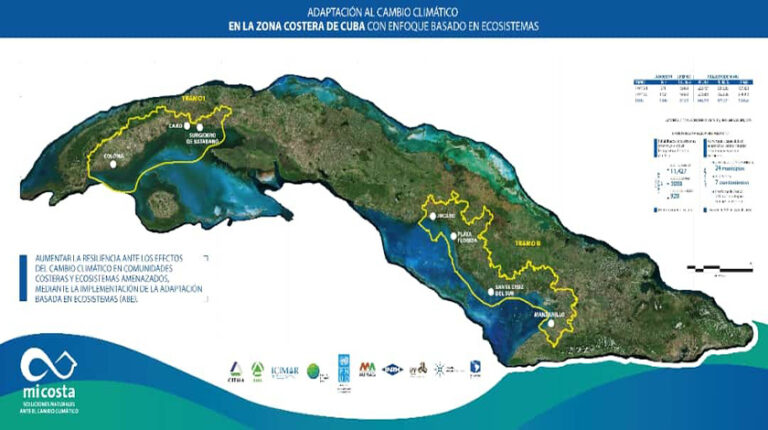The initiative, which seeks to strengthen coastal resilience to climate change along 1,300 kilometers of the insular geography, was recognized by the international organization during the Initiation Workshop of said program, whose sessions take place during this day at the Hotel Nacional.
The Mi Costa Project, according to information released by the UNDP, contributes to the fulfillment of the Sustainable Development Goals and the Comprehensive Hydraulic Development Plan until 2030 of the island, in addition to revealing that the ecosystem approach is key in Cuban environmental policy.
According to the first deputy minister of the Caribbean country’s Ministry of Science, Technology and Environment (Citma), José Santana, the execution of the initiative pays directly to the Life Task, the Cuban State’s program to confront climate change.
Santana also referred that after years of effort to achieve its approval by the Green Climate Fund, today 23.9 million dollars and 500 million pesos are available for execution.
The project focuses on the rehabilitation of coastal wetlands such as swamp forests and grasslands, mangroves and the hydrological flows that interconnect them with seagrasses and coral reefs, which, in turn, will favor the natural recharge of underground aquifers and reduce saline intrusion, ministerial sources revealed.
Other entities related to Mi Costa are the Ministry of Foreign Trade and Investment and the Environment Agency in Cuba.
ef/ode/ifs









